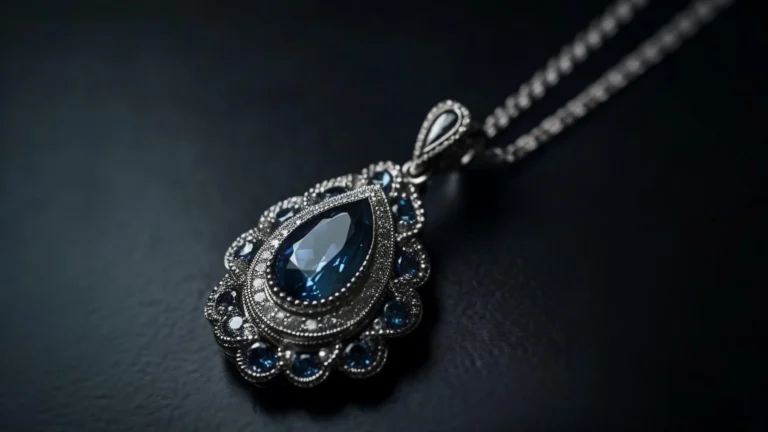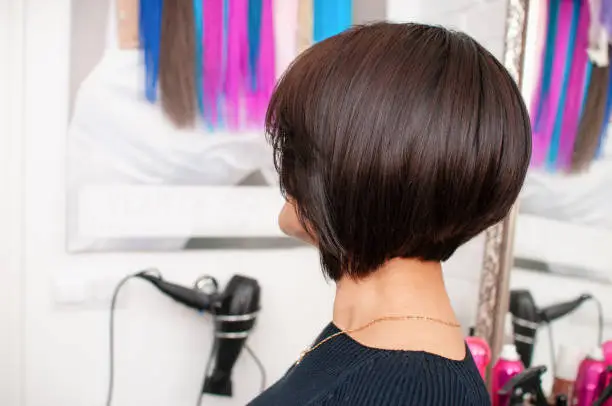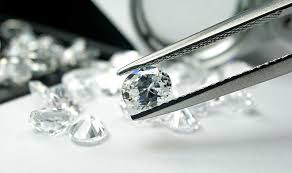Why You Should Consider Hypoallergenic Jewelry for Your Industrial Piercing
Key Takeaways:
- Hypoallergenic jewelry reduces the risk of allergic reactions and skin irritations.
- Materials like titanium, surgical steel, and niobium are excellent hypoallergenic options.
- Proper care and maintenance of hypoallergenic jewelry can extend its lifespan and keep your piercing healthy.
Table of Contents:
- Introduction
- Why Hypoallergenic Jewelry Matters
- Popular Hypoallergenic Materials
- How to Care for Hypoallergenic Jewelry
- Choosing the Right Jewelry for Your Piercing
- Conclusion
Introduction
Industrial piercings are a bold and trendy form of self-expression that has gained significant popularity over the years. Comprising two pieces connected by a single piece of jewelry, these piercings can be a striking addition to your style. The type of jewelry you choose for your industrial piercing can make a substantial difference in your overall experience in terms of comfort and health. Hypoallergenic jewelry is an excellent choice for those looking to minimize the risk of allergic reactions and ensure long-term comfort. This article will explore why hypoallergenic jewelry is an intelligent option and how to choose the best pieces for your industrial piercing.
Why Hypoallergenic Jewelry Matters
When it comes to industrial piercing jewelry, the material of the jewelry plays a crucial role in your skin’s reaction. Hypoallergenic jewelry is designed to minimize the risk of allergic reactions or skin irritations, making it ideal for individuals with sensitive skin or those prone to allergies. The presence of common allergens in regular jewelry, such as nickel and certain alloys, can lead to a range of uncomfortable symptoms like itching, redness, swelling, and even blistering. Opting for hypoallergenic materials ensures that your skin stays healthy and irritation-free. Additionally, hypoallergenic jewelry is known for its durability and longevity, offering a comfortable and enduring piercing experience. By choosing hypoallergenic options, you protect your skin and ensure the longevity and appearance of your jewelry.
Popular Hypoallergenic Materials
Several materials are renowned for their hypoallergenic properties, making them ideal for industrial piercings:
- Titanium: Highly durable and lightweight, titanium is a top choice for hypoallergenic jewelry. It is resistant to corrosion and has a low risk of causing allergic reactions. Additionally, titanium is biocompatible, meaning it is doubtful that the body will reject it.
- Surgical Steel: Surgical steel is another excellent option, mainly grades 316L and 316LVM. These grades have minimal nickel content, significantly reducing the likelihood of skin irritation. Surgical steel is also known for its strength and resistance to corrosion, making it a durable choice for long-term wear.
- Niobium: Niobium is a hypoallergenic material that is biocompatible and highly resistant to tarnish. It can also be anodized to produce a variety of colors, adding a touch of style to your piercing. The versatility and safety of niobium make it a popular choice for those looking to combine fashion with functionality.
- Platinum: While more expensive, platinum is a hypoallergenic metal with outstanding durability and a luxurious appearance. Platinum’s resistance to tarnish and wear makes it a long-lasting option, providing elegance and security for your piercing.
- Bioplast: This medical-grade plastic is flexible, lightweight, and hypoallergenic, making it an excellent option for initial piercings and those with metal sensitivities. Bioplast offers a comfortable fit and is available in various styles, catering to different aesthetic preferences.
How to Care for Hypoallergenic Jewelry
Proper care and maintenance of hypoallergenic jewelry are essential to ensure its longevity and keep your piercing healthy. Here are some tips for caring for your hypoallergenic jewelry:
- Clean Regularly: Clean your jewelry regularly with a saline solution or mild soap and water. Avoid harsh chemicals or alcohol-based cleaners, as they can damage the jewelry and irritate your piercing. Cleaning your jewelry removes buildup and keeps it looking new while preventing potential infections.
- Store Properly: When not wearing your jewelry, store it in a clean, dry place. Use a soft cloth or a jewelry box with individual compartments to prevent scratches and damage. Proper storage also helps maintain the jewelry’s finish and prevents contamination that could irritate your piercing.
- Avoid Harsh Environments: Avoid exposing your jewelry to harsh environments such as chlorinated pools, hot tubs, and saltwater. These conditions can cause corrosion and tarnish, diminishing the quality and appearance of your jewelry. Being mindful of where you wear your jewelry can extend its lifespan and keep it in prime condition.
- Inspect Regularly: Regularly inspect your jewelry for any signs of wear or damage. If you notice any issues, replace the jewelry immediately to prevent irritation or infection. Routine inspections ensure that your jewelry remains safe and suitable for continuous wear, maintaining your health and style.
Choosing the Right Jewelry for Your Piercing
Selecting the right jewelry for your industrial piercing is crucial for comfort and style. Here are some factors to consider when choosing hypoallergenic jewelry:
- Correct Size and Fit: Ensure the jewelry you select fits your piercing correctly. A too-tight barbell can irritate, while one too-loose may move around too much, prolonging healing. Proper size and fit are essential for comfort and the overall health of your piercing.
- Material: Choose a hypoallergenic material that suits your skin type and lifestyle. Titanium and surgical steel are durable and suitable for everyday wear, while bioplast and niobium are excellent for those with extreme metal sensitivities. Selecting the appropriate material can prevent irritation and ensure you enjoy your piercing without discomfort.
- Design: Consider the design of the jewelry. Simple barbells are great for everyday wear, while more ornate designs with charms or gems can add a unique touch to your look. Think about your style and how you want your piercing to complement your appearance.
- Quality: Invest in high-quality hypoallergenic jewelry to ensure durability and long-term comfort. Well-made pieces are less likely to cause irritation or damage to your piercing. Paying attention to the craftsmanship and reputation of the jewelry brand can make a significant difference in your satisfaction and the longevity of your piercing.
Conclusion
Choosing hypoallergenic jewelry for your industrial piercing is a wise decision that can significantly enhance your piercing experience. Hypoallergenic materials such as titanium, surgical steel, niobium, and platinum offer a safe and durable option that minimizes the risk of allergic reactions and skin irritations. Proper care and maintenance of your hypoallergenic jewelry will ensure longevity and keep your piercing in top condition. You can enjoy comfort and style with your industrial piercing by selecting the appropriate size, fit, and design for your jewelry. Prioritizing hypoallergenic options will ensure a healthy and enjoyable experience, allowing you to showcase your unique style confidently.
Stay in touch to get more news & updates on Aoomaal!







